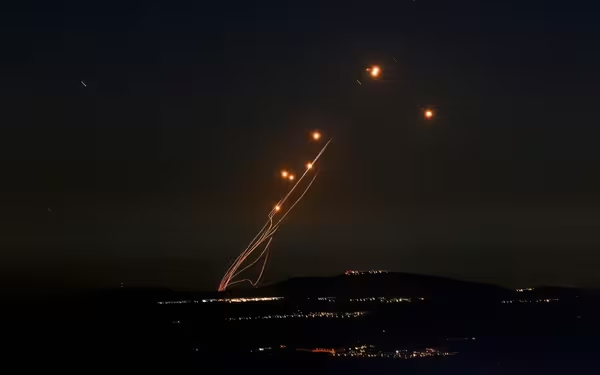Thursday, November 7, 2024 04:40 PM
Humanitarian Crisis in South Sudan: UNMISS Provides Lifeline in Bentiu
- Over 700,000 affected by severe flooding in South Sudan.
- UNMISS plays a crucial role in providing aid and security.
- Major Mohi Ud Din emphasizes urgent construction efforts.
 Image Credits: arabnewspk
Image Credits: arabnewspkThe humanitarian crisis in South Sudan worsens as UNMISS provides essential aid amidst severe flooding affecting over 700,000 people.
The ongoing humanitarian crisis in South Sudan has reached alarming levels, exacerbated by severe flooding that has affected over 700,000 people across the nation. The United Nations has reported that the situation is dire, with many communities struggling to survive amidst the devastation. In this context, the airstrip in Bentiu has emerged as a crucial lifeline, providing essential access to food and supplies for internally displaced persons (IDPs) who have faced unimaginable hardships.
Bentiu, located in Unity State, is one of the most remote and severely impacted areas in South Sudan. The airstrip, carefully preserved with massive dykes, stands as a beacon of hope against the backdrop of floodwaters that have engulfed the region. The Pakistani military engineers, working under the United Nations Mission in South Sudan (UNMISS), have played a vital role in constructing a five-meter-high wall around the IDP camp, ensuring that the rising waters do not further threaten the lives of those seeking refuge.
Major Mohi Ud Din, who leads the taskforce, has emphasized the urgency of their work, stating that they are laboring “day and night” to maintain the integrity of the wall. Their efforts have resulted in the construction of over 120 kilometers (75 miles) of dykes, a monumental task given the challenging conditions. The airstrip remains the only reliable means of receiving aid, as roads are frequently rendered impassable by the floods.
Among the displaced is Tap Mach Dhieu, a 43-year-old man who fled his home in Panyijiar County during the civil war in 2014. He relies on rations from the World Food Programme but faces additional challenges in securing firewood, often having to hire a canoe to navigate the flooded landscape. Dhieu poignantly remarked, “We survive this way,” highlighting the resilience of the people in the face of adversity. He expressed gratitude for the efforts of UNMISS, stating, “The lifeline of the people is UNMISS, not the government,” reflecting a sentiment shared by many in the camp.
However, the situation is not without its challenges. David Garang, a UN health volunteer, has raised concerns about the outbreak of diseases due to unsanitary conditions. He noted that flooding latrines are contaminating shelters, and the lack of garbage collection poses a significant health risk. Garang’s fears are compounded by the fact that while UNMISS continues to provide essential services, the day-to-day management of the camp has been handed over to the government, which has not instilled confidence among the residents.
Stephen Taker, an official from Leer County, acknowledged the critical role of peacekeepers in providing security and essential supplies, such as schoolbooks and vaccines for animals. He stated, “There are a lot of problems and without them, it would be difficult,” underscoring the importance of international support in stabilizing the region.
As the waters continue to rise, the challenges faced by the people of Bentiu are far from over. The community is working tirelessly to ensure that vehicles can move in the coming month, but the road ahead remains fraught with obstacles. The resilience of the people, coupled with the support of international organizations, is crucial in navigating this crisis.
The situation in South Sudan serves as a stark reminder of the fragility of life in the face of natural disasters and human conflict. The efforts of organizations like UNMISS and the dedication of individuals like Major Mohi Ud Din and David Garang highlight the importance of solidarity and support in times of need. As the world watches, it is imperative that we continue to advocate for the rights and well-being of those affected, ensuring that they are not forgotten in their time of crisis.













